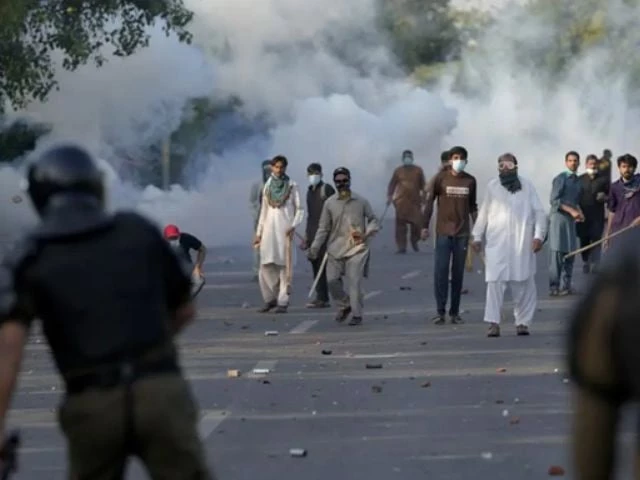Islamabad:
The Supreme Court called on the federal government and the Parliament to adopt legislation within 45 days to allow an independent right of appeal against convictions by military courts. The Supreme Court stressed that this safeguard is essential to guarantee regular procedure and constitutional law at a fair trial.
This directive came in a decision on a set of intra-haired calls (ICA) heard by a wider bench in the Supreme Court under Article 5 of the Supreme Court (Practice and Procedure), 2023.
The calls challenged the judgment of October 23, 2023 in the petition for constitution n ° 24 of 2023 and the related affairs. In this decision, a bench of five members (by a majority 4-1) had declared certain provisions of the 1952 law on the Pakistani army, and had prohibited the trial of civilians before the military courts after the troubles from May 9 to 10, 2023.
In its last ordinance, announced on May 7, 2025, the Supreme Court canceled this previous judgment and reinstated article 2 (1) (d) (i) and (ii) and article 59 (4) of the Army Act.
These provisions allow civilians to be judged under military law if they are accused of having attracted military personnel from the obligation or of committing offenses under the official law on the secrets of 1923, linked to defense establishments. However, the court said that this authority is limited and not a general authorization to try civilians in all cases.
Judge Amin-Ud-Din Khan, who wrote the 68-page majority judgment, said: “Although the army law understands formal regular procedure protections, the absence of an independent appeal law before a civil court makes constitutionally incomplete civilians. The provisions themselves are not unconstitutional, but this gap must be committed by legislation.”
Judge Muhammad Ali Mazhar, a concordant opinion, stressed that an independent right of appeal before a civil forum is a fundamental component of the regular procedure and the right to a fair trial under article 10-A of the Constitution.
Until the Parliament adopted the required changes, the court declared that sentenced to the military court could contact the high lessons. These courts would then evaluate if a regular procedure was respected and if the convictions were supported by adequate evidence. The deadline for 45 days has been established to “cure the defect” and align military justice with constitutional protections.
The court also reiterated that, although the peaceful protest and the assembly are protected rights, violence, destruction of goods and attacks against military facilities cannot be justified under the cover of fundamental freedoms. The incidents from May 9 to 10, he noted, constituted serious threats to national security and required a firm but legal response.
By restoring the disputed provisions of the Army Act, the court has shown in deference to the legislative authority of the Parliament, but also insisted on the necessary legal guarantees. “The law must be saved rather than destroyed,” wrote Judge Mazhar. He added that even if the judiciary interprets the law – does not write it – he must always guarantee compliance with the Constitution.




